The Matrix, The Matrix Reloaded, The Matrix Revolutions (1999, 2001)
Directed by: Andy Wachowski, Larry Wachowski
Written by: Andy Wachowski, Larry Wachowski
Starring: Carrie-Anne Moss, Hugo Weaving, Keanu Reeves, Laurence Fishburne
So as the new film is finally upon us, I decided to repost this article of mine from two and a half years ago with a few minor changes. The Matrix trilogy is strange in that loads of people love the first film and regard it as a seminal movie, but don’t think much of the sequels at all. The only other trilogy off the top of my head that folk tend to think of in a similar vein is Smokey And The Bandit [okay the first movie is rarely considered an actual classic but I’m sure you get what I mean]. But I’m different, which won’t surprise most readers. I’ll say it now – I just cannot understand why the sequels got such a poor reception – though I’m going to try to do so later in the course of writing these reviews. I remain a member of that small minority that really enjoys and thinks highly of the whole trilogy, while thinking that the first film is a tad overrated even though I certainly can’t deny its impact. But then my Matrix journey was different to many others, something which I will go into as I review the films. Something I’m not going to go into in any great detail – though I’ll certainly touch on it – is the philosophy which influenced the films. Seeing as getting through the three philosopher’s audio commentaries on the Blu-ray set is still a task I have yet to achieve, I’m probably just not learned enough to do this probably very important aspect of the films justice. But I hope you’ll enjoy reading and will appreciate my opinions even if you don’t agree with them. There will be MAJOR SPOILERS!
Computer programmer Thomas Anderson aka the hacker Neo, keeps encountering cryptic phrases involving “the Matrix” online. A woman named Trinity tells him that a man called Morpheus can explain its meaning, then he’s threatened by Agents after the “terrorist” Morpheus, who later offers him a choice between a red pill that will show him the truth about the Matrix, and a blue pill that will return him to his former life. Neo takes the former and discovers that the real world is a ravaged wasteland where most humans are held by machines that live off their body heat and electro-chemical energy, and who imprison their minds within an artificial reality known as – the Matrix. Any free humans live in Zion, the last refuge in the real world. Morpheus and his crew are a group of rebels who hack into the Matrix to “unplug” enslaved humans and recruit them, but have to contend with the Agents who are powerful computer programs designed to eliminate threats to the system….
My Matrix journey was different to many. I saw The Matrix in the cinema, but it was quite late in the day for reasons I can’t recall. The huge hype and everyone saying how brilliant it was were probably the major causes in me being rather disappointed. I barely understood what seemed to me to be little more than a combination of Dark City, Ghost In The Shell and Hong Kong movie influences which were nothing new to me as I’d been a fan of Hong Kong action for many years. And despite all this fuss being made about the action in this new film, most of it was in the final third. And what was up with that ending? But when The Matrix Reloaded was about to come out, they showed The Matrix on TV, I watched it and – wow! – I got it. I think it actually helped that at the time I was suffering from depression and hated the world and much of what was in it. And it really did seem audacious to have a film so ambitious in its ideas and so determined to make the viewer think yet which still gave you many crowd pleasing aspects – though would it be such a hit today? I sadly doubt it. In any case, my view on the film for quite a few years now has been that it is very good – but not excellent, certainly not a 10/10 film. For me, there’s a slight dichotomy between the thoughtful, mind bendy elements and things like the gun play and the martial arts, as good as they are. There’s also a major hole [okay, it’s maybe not a hole, but it’s a big question] in the premise, and the middle section does drag somewhat – though Warner Bros. did require some extra explanation of things as a condition of deciding to film the script, so this may partly have been down to them.
The Wachowskis wrote this way before it was made, the script being part of a package along with Bound that Warners bought when they liked their screenplay for Assassins. After Bound was well received, the studio got interested in The Matrix. Will Smith was asked to star, but turned it down because he didn’t understand it. Despite producer Joel Silver and others being keen on the project, it took a 600-page shot-by-shot storyboard for the entire film to totally convince Warners to take on such an ambitious, expensive undertaking, which became a co-production with the Australian company Village Roadshow Pictures to be shot in Australia, mostly Fox Studios in Sidney. Cast members were required to read philosophical tomes, then many had to undergo four months training under Hong Kong movie veteran Yuen Woo-Ping [who didn’t want to do the film and hoped that by asking for a huge fee and total control he would put the Wachowskis off] to do the “wire-fu”, despite Keanu Reeves suffering from paralysis in his legs and an inability to move his neck due to a two-level fusion of his cervical spine which meant that he couldn’t kick much. Carrie-Anne Moss insisted on doing all her own stunts until she injured her leg, though she still hid a twisted ankle until after filming in case she was replaced, and Chad Stahelski, Reeves’ stunt double, sustained broken ribs, knees, and a dislocated shoulder. The iconic “bullet time” effect was basically a technically advanced version of an old photography technique known as time-slice photography, in which an array of cameras are placed around an object and triggered simultaneously, creating the effect of “virtual camera movement”, the illusion of a viewpoint moving around an object that appears frozen in time. The UK version of the film lost ten seconds of headbutts until 2006.
The opening section of The Matrix is a model of economical scene setting and story telling, and the very first scene still enticingly mysterious, as we hear the voices of characters we don’t yet know talk about stuff we don’t yet know about, after which we zoom into a zero on the Matrix itself and go through a digital tunnel to become a cop’s flashlight. It’s still easy to see how Trinity’s martial arts acrobatics wowed Western audiences even though Asian films had been doing that kind of thing for many years, as she runs up walls and jumps across buildings while kicking some policeman butt, then fleeing the Agents. Most films would then probably have spent a bit of time showing us Neo’s life before he takes that pill, but this one just shows him doing what he does for just a few minutes before things turn weird. As I write, I’m reminded of another reason why the film was such a letdown for me back in 1999. The next 15 minutes or so are not just dark but quite horrific and I expected things to remain in this vein. Agent Smith somehow causes Neo’s mouth to seal so he can’t speak, then causes a bug resembling an insect to be swallowed up by his belly button. Then, when he swallows the red pill [something I’d have probably regretted doing big time] and silver fluid covers him and moves down his throat, he blacks out and awakens inside a purple embryonic pod, extending from the side of a huge column, part of a massive power plan. He’s hairless and naked, with thick black tubes snaking down his throat, plugged into the back of his skull, his spine, and invading most of the rest of his body, and surrounded by tower after tower of pods just like his, all filled with bodies. Then a menacing, hovering nurse robot grabs him by the throat, the tubes detach and Neo is flushed down a tube into an underground pool of filthy water. The imagery really is quite nightmarish – and it’s scary to think that we may one day reach a time when machines do enslave us. They already control much of what we do.
Once Neo is on the Nebuchadnezzar, things do slow down drastically even when we’ve stopped learning about the reality of how things are. I’m not sure that we needed the traitor on the ship and at least one of his scenes outstays its welcome. But the Oracle is wonderfully cryptic even though this supposed fountain of all knowledge is soon proved wrong – though of course this does underlay the theme of predestination vs. free will which is very strong in the trilogy. And I love Agent Smith’s extended scene with the kidnapped Morpheus – this menacing bad guy seems to really be sharing personal thoughts, even if he is still just a computer programme. Watching the film with a hopefully keen critical eye, I feel that I only truly appreciated Hugo Weaving’s fantastic performance for the first time . The character is basically emotionless, as he should be, but Weaving gives him brilliantly subtle layers throughout. I don’t think he’s ever been better. Of course the explosion of action that follows still thrills, the helicopter sequence that was [too] widely shown before the film came out coming across especially well today because it’s about 50/50 CGI/practical effects. A few digital sights elsewhere don’t convince 100 %, but here’s the thing – this is a film from 1999 and yet much of today’s CGI is no better as so many productions now do everything with CGI and therefore spread themselves thin. Now the ending – it still doesn’t satisfy me, especially considering that The Matrix Reloaded didn’t really follow through on what it seems to promise. But it’s not actively “bad”, and visually bookends the film with its first shot, though I do wonder what happens to the billions who’ve just been “unplugged” from the Matrix. There’s a good film in that.
While I previously noticed Christian elements here and even more so in the third film, it seemed to be this time around that Buddhism [and religion is something I do know a little bit more about than philosophy] was even more of an influence, What we’re basically seeing are the Two Truths: Relative Truth, where everything is perception, and Ultimate Truth, which is how things really are. We mistake the everyday world for something real because we’re ignorant. Breaking through to direct contact with Ultimate Truth represents spiritual enlightenment, and Neo is one of the few who do it and who can in turn guide us on the path. Of course things like Neo mowing down loads of people with a variety of fire arms directly contradicts Buddhist teaching, so I don’t think that one should look for any single thing to be what The Matrix is really based on. Rather, the Wachowskis drew from a wide variety of sources so you can take what you want from the result. Some are explicit, some not so, from Lewis Carroll to Frank Kafka to, yes, philosophers like Friedrich Nietzsche and even Socrates which even I can see. To put all this often heady stuff into a film and still create a massively popular entertainment is some feat [though maybe luck and timing surely played a part too].
The green tinting whenever we’re inside the Matrix sometimes gets a bit much and I cannot help but question why the machines need to do what they’re doing. Do they really have to generate power this way, and why give the humans dreams when they would generate just as much energy if comatose? Why go to all the trouble of creating a different illusion for each person? And the introduction of Love to ensure that Neo can rise up and win the fight he can’t seem to win seems out of place, especially as Reeves and Moss have little chemistry, something that would become a bigger problem in the sequels. I’d have liked composer of the music score Don Davis to have a decent theme or two rather than tiny motifs, even though his score is intelligently constructed so orchestral, choral and synthesiser elements are constantly doing battle. But that’s more just down to my personal taste. Though probably a science fiction classic slightly more because of how influential and iconic it was than its qualities as a film, The Matrix remains a striking achievement, and one the Wachowskis seem doomed never to repeat. But I believe that – I’ll whisper it – they did better [well, except critically and commercially] with the first sequel. I’m probably certifiable of course.
Six months later; Neo has more powers and he and Trinity are a couple, though he keeps dreaming of Trinity’s death. More and more humans are being freed from the Matrix and brought to Zion the one stronghold of the Resistance. However, 250,000 machine sentinels are digging to Zion and will reach it in 72 hours. As the underground city prepares for the ultimate war, the Oracle instructs Neo to find the Source of the Matrix with the help of the Key Maker. However, Agent Smith has somehow escaped deletion and has become more powerful….
So after really liking The Matrix second time round, I was totally excited for the first sequel and friggin’ loved it. The film was actually a hit despite what you may have heard, and reviews, if more mixed this time, were often positive. But there was certainly a feeling of disappointment, not to mention bafflement, in the air, which led to far less attending of The Matrix Revolutions six months later. The Wachowskis didn’t seem to do what a lot of people wanted with the sequel, and they were genuinely self indulgent in places, but surely, even if one doesn’t like the film, one has to begrudgingly admire the fact that it’s braver and more challenging while also delivering more bang for your back? I was one of many let by Neo not really doing what he promised at the end of The Matrix, but I will attempt to answer the other major criticisms folk tend to have a bit later. One thing I’m sure of – this is a more evenly and better paced picture than the first one even though it’s somehow been called draggy and turgid. On the other hand I do agree that much of the action feels gratuitous [but you can say the same about most martial arts movies] rather than coming across as a natural evolving of the story as before, and that they could have told the basic plot in little over an hour and merged it with the next installment. But let’s not dwell on that, because my overall intention was to praise the film, not to bury it.
So Warners weren’t going to turn down the offer of not one but two sequels, this one being filmed back to back with The Matrix Revolutions, though probably weren’t too happy when the Wachowskis stipulated that they would give no interviews. Sean Connery was intended to play the Architect but didn’t understand the film, while Seraph was written specifically for Jet Li but he asked for the same amount of money as Keanu Reeves was getting. Zee was intended to be played by Aaliyah, but she died in a plane crash and had to be replaced, while Gloria Foster [The Oracle] died just as she’d finished shooting her scenes but before she’d done any for the sequel. This time eight months of martial arts training was required, and during it Carrie-Anne Moss broke a leg and Laurence Fishburne fractured an arm, while later on Hugo Weaving put out a disc in his neck while being pulled back on a wire. Fox Studios in Australia was again the main filming locale, though the freeway chase and Burly Brawl scenes were shot at the decommissioned Naval Air Station Alameda in Alameda, California, where they constructed a 1.5-mile freeway on the old runways. The sequence took three months to shoot and wrecked three hundred cars. ESC Entertainment was set up to carry out the complex digital work and came up with virtual cinematography in which characters, locations, and events can all be created digitally and viewed through virtual cameras. Around 97 percent of the materials from the film sets were later recycled after filming had been completed.
Again we begin with a track into a digital number and out into what we think is the real world, this time ending up on a number on a clock, and again we have some Trinity arse-kicking, though this time it’s a dream of Neo’s that ends with her death and there’s far more slow motion – in fact the Wachowskis do rather overdo the slow motion in this one. We now see Zion, and I guess it isn’t hugely original in appearance, but then it looks like it’s been designed more for practicality. There’s a used, gritty feel to much of what we see in these films. Morpheus is in trouble for keeping one ship inside the Matrix in case the Oracle makes contact, we learn that his ex Niobe is now with Lock in a subplot which goes nowhere, and we see Link with his girlfriend Zee – but even if you find this stuff dull, isn’t the large amount of black characters interesting and definitely ahead of its time in such a “big” movie? Female characters tend to be strong also, something emphasised even more in the next one. As for Neo, he’s rather lost. He may be in a full relationship with Trinity, but he doesn’t know what his purpose is. He can’t even find the Oracle any more. Reeves is rather good in these scenes, though of course he’s outshone by Weaving again, bringing great little nuances to the revived Agent Smith, who’s found a way to create doubles of himself but will pause briefly to do things like adjust the tie of one of them. It’s not long before we get to the scene that was most mocked, the rave in Zion set up largely as an act of defiance, and I could have done without all that slow motion [again] and the cuts to Neo and Trinity making love as the two generate no heat whatsoever together and Neo doesn’t even look like he “comes” even though she obviously does. However, I still find it rather spiritual and uplifting – and I know that if I thought there would be a good chance of me dying in a war soon I’d go and party like hell.
Neo fighting Seraph before he sees the Oracle – soon revealed to be just another programme – is the most obvious plonking in of an action scene, but just look at the choreography and the moves, they’re fabulous – technically this is the best fight in the film. After this we’re introduced to the second best performance in the trilogy, that of Lambert Wilson as the Merovingian, adding a lighter feel to the soberly toned proceedings with the way he speaks his French accented [the language is like “wiping your arse with silk” the actor said] lines, though you may wonder why the character is even in the film, and Neo being reluctant to kiss Monica Bellucci passionately is probably the most fantastical thing in it. The chateau battle is great the way as many random weapons as possible are employed, and then we get the incredible highway chase, a brilliantly sustained section of action cinema that lets Morpheus and Trinity dominate while Neo is mostly elsewhere. The scoring is most important here, with the electronic hard trance of Juno Reactor doing musical battle with Don Davis’s orchestra. But the film scores just as highly in much of its dialogue, like that calm bit just after the party where Neo and Counsellor Hamann go to the “engineering level” and discuss the irony of Zion being reliant on machines. Of course some just find stuff like: “Not everyone believes what you believe”, “My beliefs do not require that they do”, just infuriating, but another angle could be that it’s oddly poetic and thought provoking. The Oracle scene is amusingly confounding and emphasises the way that this second film is as more about choice than perception. “But if you didn’t already know that, how can I make a choice”? “Because you didn’t come here to make the choice, you’ve already made it”. Shoot me, but I flippin’ love this kind of thing.
It does end suddenly but then so do some other part twos that people tend to rave about. Aside from the CGI which isn’t used much more excessively than in the first film [and not as excessively as in today’s Marvel pictures which are mostly critical darlings] and which even in the Burly Brawl looks better than in some of the action scenes I’ve seen at the cinema the last few months, that probably leaves the controversial Architect scene to stick up for. Ah yes – the Architect. I personally find it hilarious that the Wachowskis seem like they decided to take the piss here and have some all-important revelations delivered in as confusing a way as possible. But what the Architect says is the cruelest, most subversive and most brilliant of twists, asking us to wonder if anything is not controlled – and I do wonder if this is what turned many so people off the franchise. Maybe this was a revelation or two too far after having already had to swallow a great deal, and it was too bleak, resulting in things like our hero seeming far less heroic when we know that he’s a deliberate construct too. Prophecies are usually unassailable things, but here one is just another form of control. Neo is revealed to be an intentional part of the design of the Matrix, which is actually really old and every now and again creates a being to stop the whole system crashing due to humans beginning to make choices and other anomalies. He can either return to the Source to reboot the Matrix and pick survivors to begin to repopulate the soon-to-be-destroyed Zion which is most likely as his predecessors did the same, or cause the Matrix to crash and destroy all of humanity – though of course that would destroy the machines too. Neo chooses the latter so he can save Trinity, even though Trinity would still die anyway – but notice how all the way through his conversation with the Architect he’s been standing nearer one door than the other. He made his choice almost immediately.
Many of the previous influences remain, but Hinduism also seems to be borrowed from this time around, especially with regard to the Source, which is very reminiscent of Brahma, a god composed of white life energy who created all things and to whom mankind will eventually return, while thinking about things I was also reminded of some things in Dune – though the book more than any of three film or TV adaptations, even the latest one. The Wachowskis sure did use things from a great many sources, so much so that I reckon that I’ve only just scratched the surface, but here’s the thing; they still managed to create a pretty original product nonetheless while pretty much all of these influences seem organic, not just thrown in to show off how clever the Wachowksi’s are. The Matrix Reloaded is a daring, cheeky, confounding, yet still often highly thrilling science fiction actioner that’s about as conceptually audacious a mainstream motion picture as you can get. Maybe one day it’ll get its proper due. Just like the Wachowski’s even more amazing [there, I said it and I ain’t taking it back] Cloud Atlas.
Neo discovers that he’s able to use his powers in the real world too and that his mind can be freed from his body, as a result of which he finds himself trapped in a limbo transition zone between the Matrix and the Machine City controlled by the Trainman, an exiled programme loyal to the Merovingian. Seraph, Morpheus and Trinity force the Merovingian to release him. They believe that he’s the One who will end the the war between humans and the machines, but they don’t yet know is that there is a threat from a third party, Agent Smith, who intends to destroy both worlds….
So we now come to the film that I probably agree a bit more with the majority about, The Matrix Revolutions. Whether one considers it to be a huge let down after The Matrix Reloaded like myself or simply continuing a reduction in quality that had already began [like many others], there’s no arguing against the fact that, while a solid sci-fi/war movie in its own right, the final part is a tad weak. Especially notable is how less imaginative it is and how more conventionally ‘Hollywood’ it is. Perhaps the Wachowskis fully intended this and thought it to be a good thing after the craziness of The Matrix Reloaded which ended up rubbing many people up the wrong way but for somewhat different reasons, while they’d probably exhausted their brains coming up with so many great ideas, images and scenes for the first two. But none of this totally atones for how disappointed I personally was when I saw it at the cinema – though successive viewings did cause it to improve a little to my eyes, and watched critically there’s still much of interest and to praise. And it does conclude the overall tale in a daring and to me quite satisfying manner – though I only really came around fully to the latter opinion comparatively recently.
So this was filmed immediately following The Matrix Reloaded, though Gloria Foster [The Oracle] passed away just before production moved on and had to be replaced by Mary Alice. The Wachowskis decided to establish that, in The Matrix universe, programmes living in the Matrix can change, and choose their forms and appearances. Of course it’s so easy to do this kind of thing in fantasy films when this kind of thing happens. Shot entirely at Fox Studios, there was no digital invention this time, but a machine called The Tuning Fork, rotatable at 360 degrees, was specially constructed for the effect of Neo and Smith fighting in the air, heading upwards into the sky. Some money was saved by only building one full-size APU fighting craft, with parts made detachable so that for scenes involving different pilots and APUs, the detail work could be altered. In an unprecedented simultaneous global release, the film opened at exactly the same moment in every major city in the world on November 5: 6 a.m. in Los Angeles, 9 a.m. in New York City, 2 p.m. in London, 5 p.m. in Moscow, 11 p.m. in Tokyo, November 6 at 1 a.m. in Sydney, and at corresponding times in over fifty additional countries worldwide. But attendance was nearly half that of the previous film. I recall being very surprised by the low number of people in the cinema screen in which I saw it.
While we again open with a POV trip through the Matrix, we don’t finish on something interesting this time, something can perhaps be taken as a sign that the Wachowskis were running out of ideas. We rejoin Neo, now trapped in a nearly deserted railway station which is basically limbo, as constant shots of a sign on a wall that says Mobil Ave remind us. Another visit to the Oracle introduces her new form, and Mary Alice doesn’t have the mischievous undercurrent that Gloria Foster brought to the part whom I much preferred, Never mind, we soon meet the Merovingian and Lambert Wilson’s fun delivery of lines like: “What some see coincidence, I see consequence, what others see chance, I see cost”. This time a lobby shootout features villains who can fire their guns while walking on ceilings, while Seraph, Morpheus and Trinity make for a great team. After this though, the majority of the action takes place in the “real” world, probably the correct decision even though it means that we can’t see much in the way of wire-fu and superhuman tricks, something that sure disappointed me in the cinema. It’s quite a contrast seeing Trinity and then Neo engage in a clumsy, brutal brawl with someone possessed by Smith, detracting from the fact that we’d already had the “baddie in their midst” thing done in the first film. And just after this, the roles of the Architect and the Oracle are made clear. The Architect wants to maintain balance [“choices – to him they’re horrible in an equation”], the Oracle wants to unbalance things to end the war in as ‘good’ a fashion as possible – while good old Smith is nothing more than an enormous virus and just wants to destroy everything – but is also Neo’s opposite!
When we get to it, the big battle is quite spectacular. While the digital explosions don’t look too good [but then they rarely do], the visuals otherwise do mostly convince and don’t overwhelm the feeling of realism that pervades the mayhem. Unlike in many similar sequences today, the camera movement and cuts aren’t so much that you get sore eyes and can’t always see what’s going on. But even this time around I couldn’t help but laugh at the bizarre design of the APUs, fighting machines probably inspired by the power loader from Aliens but which leave the pilot with no protection whatsoever. I don’t mind the fact that the main characters aren’t present in the battle, which is a criticism that I’ve read a few times, though we should have been given enough other characters to fear for. The only major new one is Kid, who’s underage and really really keen – and who of course therefore carries out a major feat of heroics. The writing is very cliched here and in some other places. There are also some stupid bits, like when one ship keeps bouncing off walls and losing bits yet still doesn’t crash. And the final duel between Neo and Smith is lacking. The dark green everywhere makes for an unappealing and far too fake-looking setting while Reeves and Weaving spend too much of the time spinning around in the air instead of really going for it with martial artistry. But it’s great to see Weaving finally go full-on hammy just a bit in what is a superbly modulated performance throughout the trilogy as Smith exhibits an increasing amount of human traits but never changes from being a deadly, determined killing machine.
It’s a sure sign of perhaps the trilogy’s biggest flaw in my opinion – its coldness – that we just don’t care too much when Trinity dies. Being a wuss when sad things happen in movies, the fact that I’ve never come close to even shedding one tear when it happens is certainly a problem. While I do love the exchange: “I just never had a programme speak of love, it is a human emotion”, “No, it is a word. What matters is the connection the word implies”, the romantic element in the films just never comes off for me, down I guess to weak writing and/or acting – though Reeves and Anne-Moss are okay on their own. I studied Reeves’s performance in these films and I came to the conclusion that the reason he’s so likable generally and so effective in these films is that, even if his line delivery is often wooden, his body language is usually very good indeed, and especially in this third film. But by God, from the opening set in purgatory to Neo making the shape of the cross as he dies, this one really does go heavy on the Christian references. And it’s hard not to conclude that the Architect represents God, the creator of the world and its destroyer, whenever things don’t go as he wants, Neo is Jesus, the one who realises that peace and love is the answer not war, and the Oracle represents the Holy Spirit, the consciousness that resides in us all. But of course there’s always so much else to pick up on, like the employment of Chinese yin-yang philosophy which reaches its most explicit statement when Neo finally realises that only his own sacrifice can end the conflict between machines and humans, and therefore needs to accept his evil twin brother Smith and reunite with him in order to become complete. It’s not that difficult to understand, and, while I’m sure that more intelligent readers may know otherwise, it seems that the major philosophical aspects to the trilogy are basically fundamental things that are pretty easy to understand: choice vs. predestination, perception, harmony of body mind and soul, do humans define themselves through suffering etc.
So Neo ends up doing something very simple, but something that his predecessors never thought of doing. He asks the machines for peace. The saga would probably have pleased more people if it had ended with the humans victorious over the machines, but I feel that such chickening out,“the good times are a-comin” stuff would have been a betrayal of its ethos. Instead, we get a conclusion that’s not just a stalemate but quite horrifying if you think about it. The machine world still rules us, the Matrix is still in place, humans – whether underground or coming up to the wasteland on the surface – have nothing much to look forward to, and there’s very little chance that the candy-colored dawn of no sentinels is going to last. I can’t right now think of a better conclusion to a trilogy that for me, more than probably anything else, works extremely well as a story throughout its three films, despite whatever flaws these films may have. It’s just a bonus that it’s a story that gets you thinking, even about where we are headed. I reckon that the Matrix trilogy will become more and more pertinent as digital technology is able to do more and more, and controls more and more of our lives. Who’s to say that one day we won’t be living in artificial constructs and will be so blind that we won’t even know about it – though, unlike Neo, would we even care if we did?

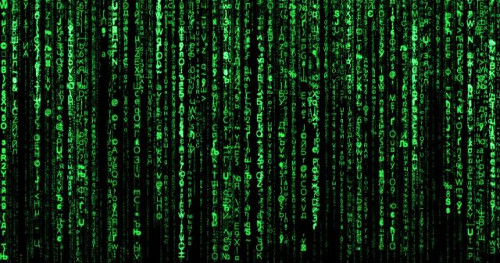
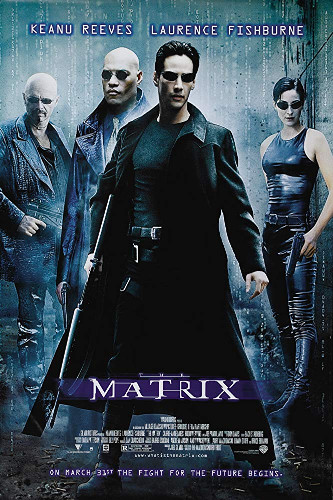
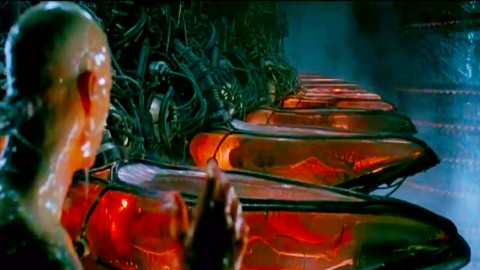
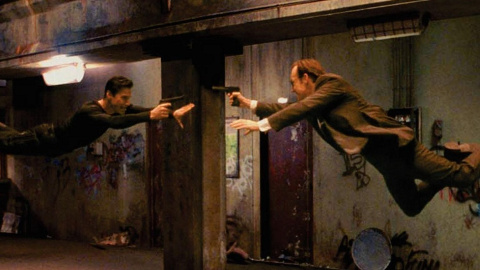



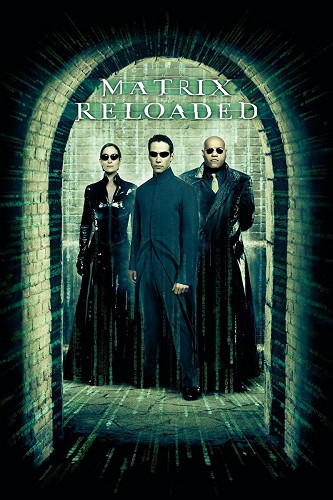
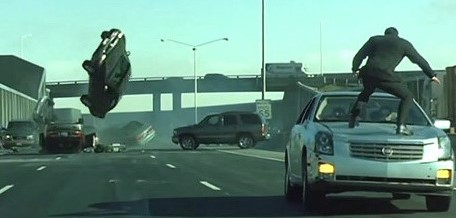
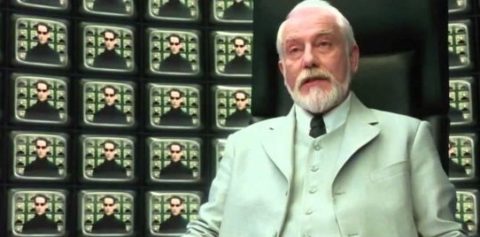
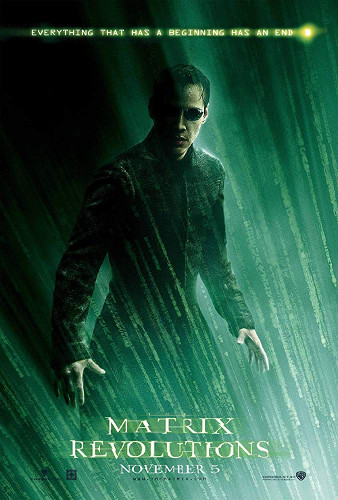
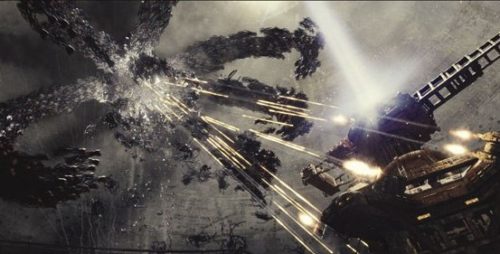
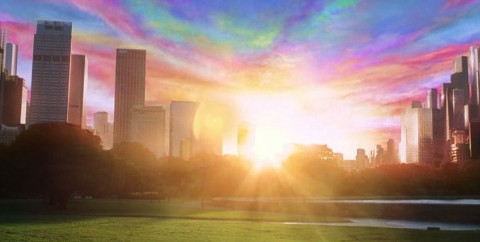

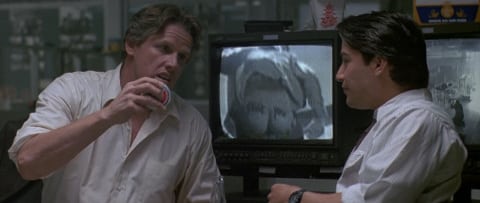
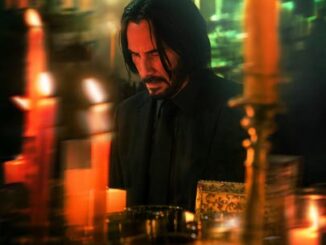
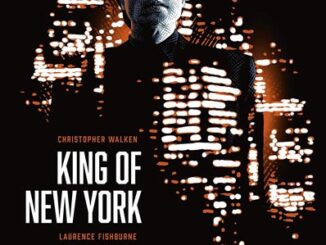
Be the first to comment